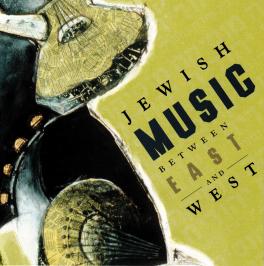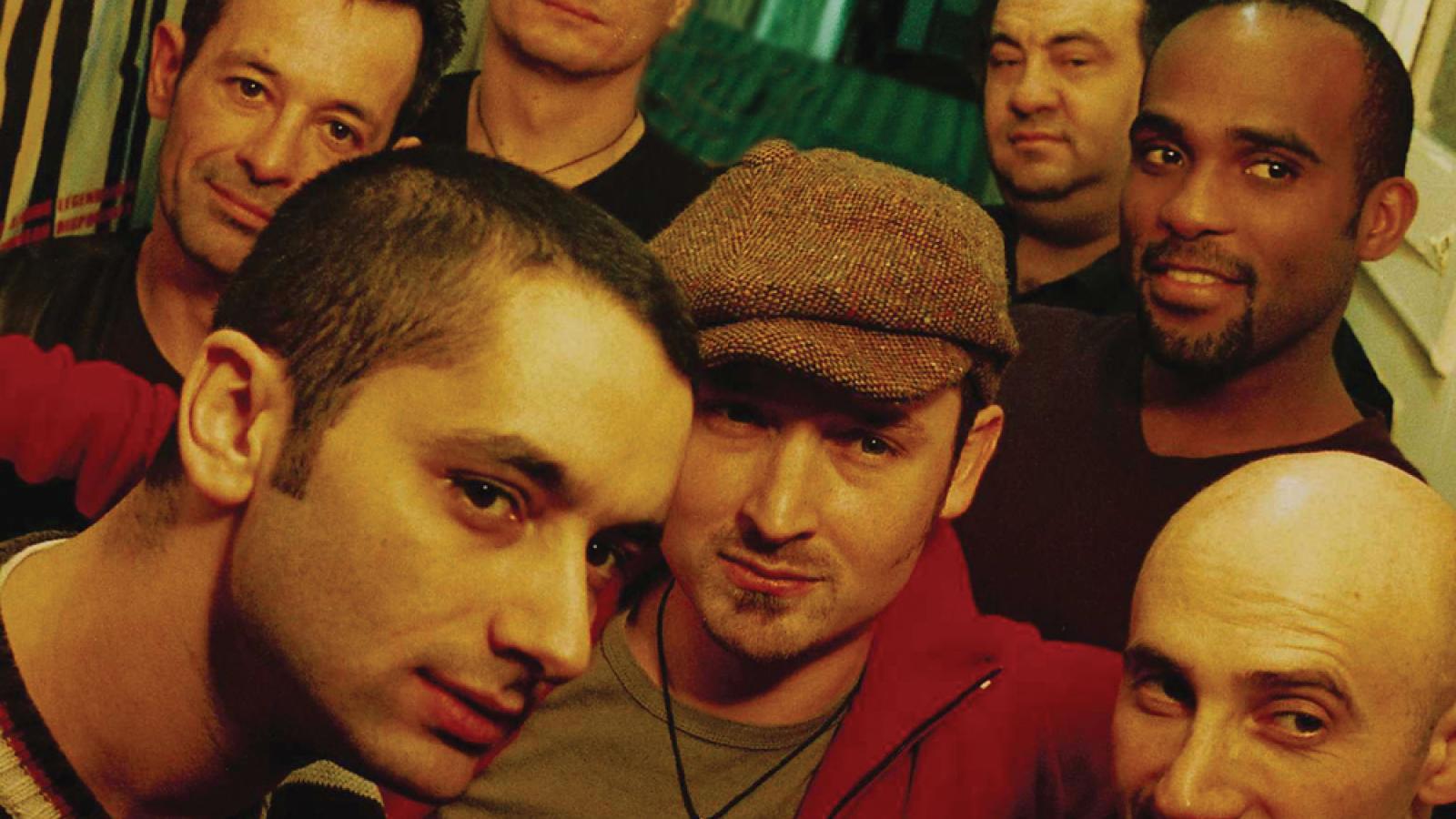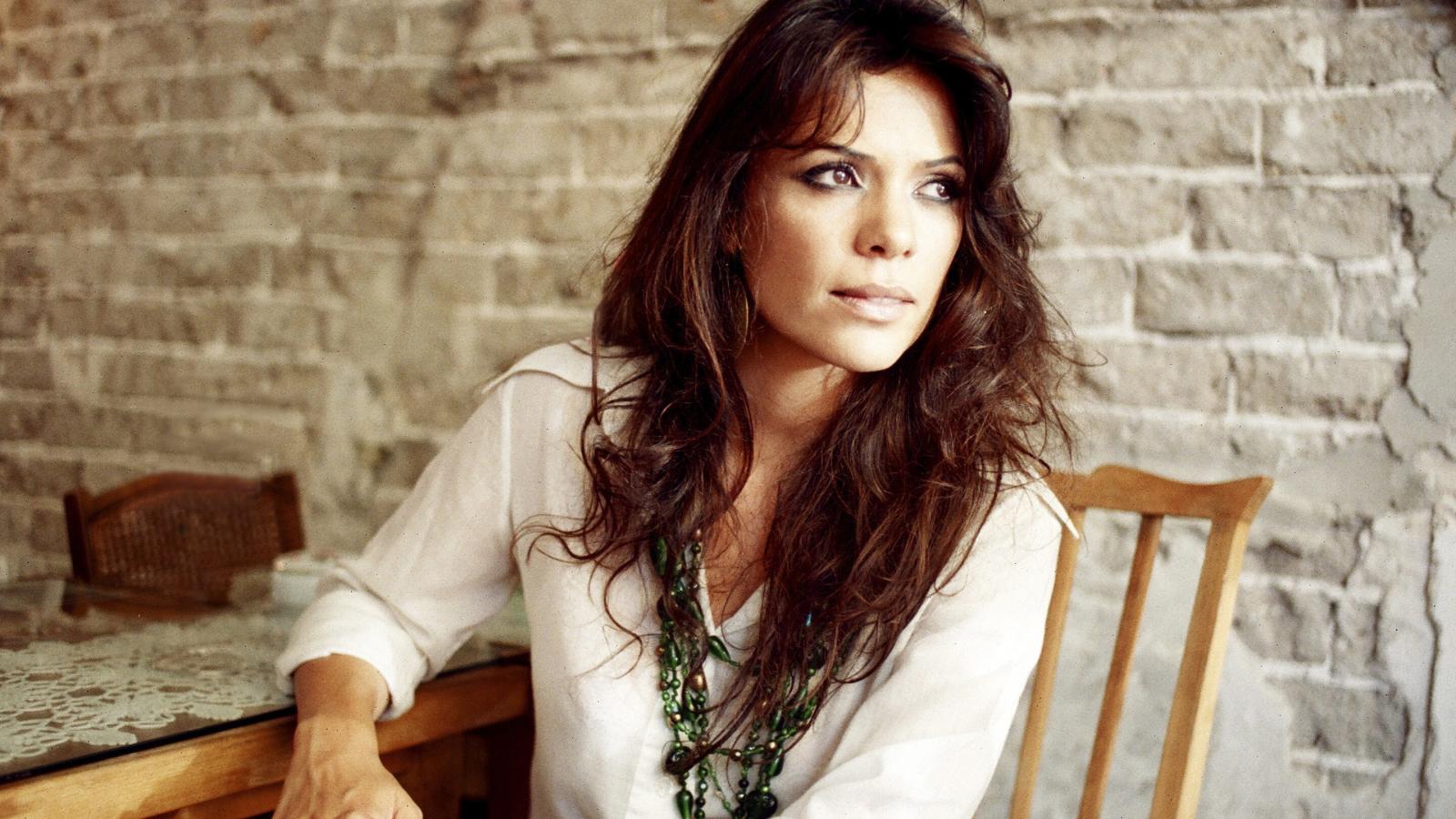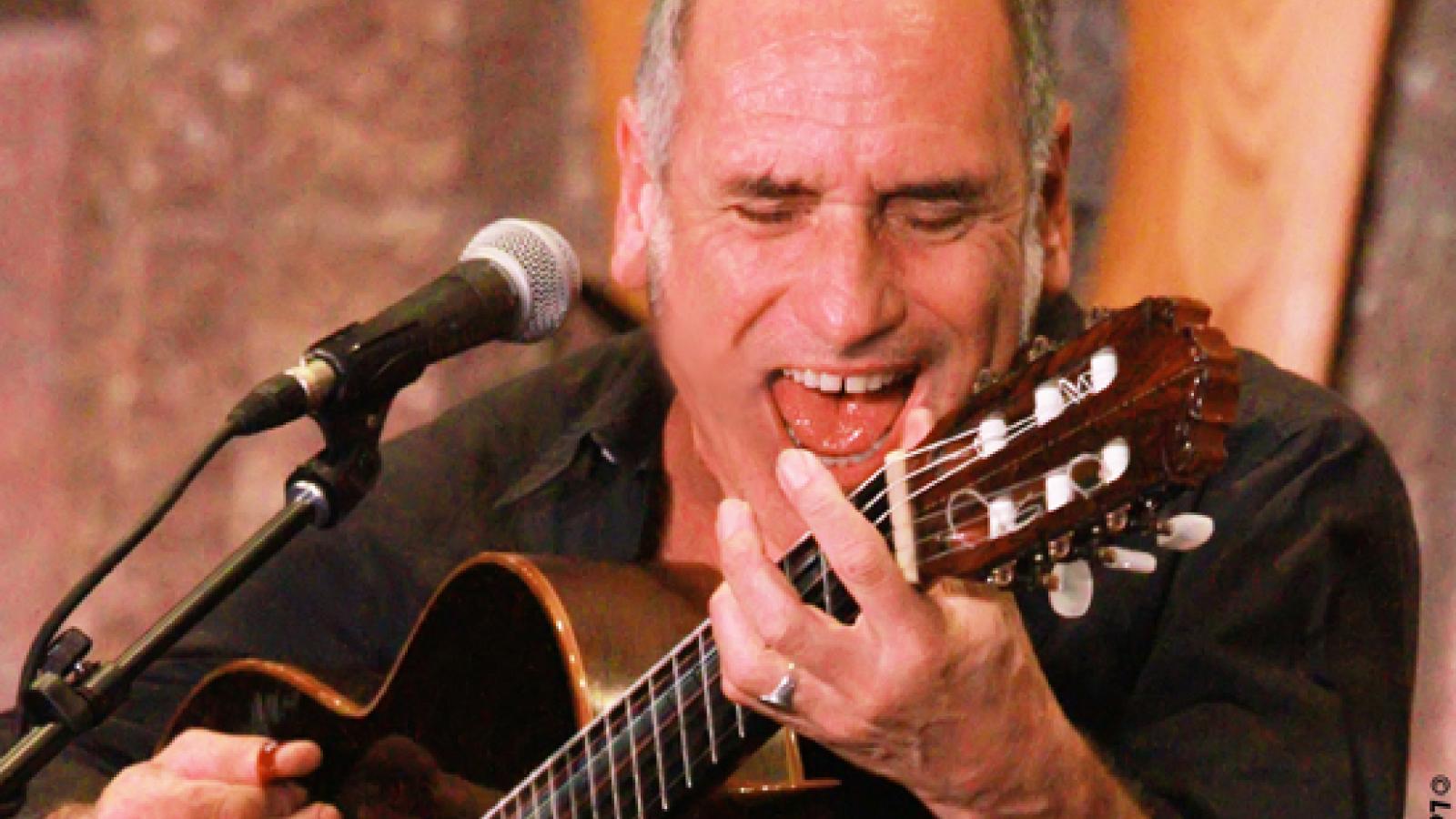Jewish Music
Since 2004, the Melton Center has presented music concerts featuring classical, modern, Yiddish, Middle Eastern, and eclectic genres.
Music traditions are mediated languages that emerge within the context of cultures and simultaneously reflect and actively generate the everyday lives of the people who create them. The three CD set, Jewish Music Between East and West, which you can listen to here, invites listeners to enjoy a rich offering of rarely heard musical compositions while simultaneously considering complex soundscapes in their musical, social, and political contexts.
As musical texts, the soundtracks suggest a variety of research directions, the relationship between European classical music traditions and Jewish European liturgical and secular music, the permeability of boundaries between Sephardi, Middle Eastern, and European Jewish music traditions, and the devastating impact of antisemitism and genocide on Jewish musicians and their artistry in 19th and 20th century Europe.
-Recorded February 24, 27 and March 14, 2002 at Weigel Hall, The Ohio State University.
Copyright © Israel Music Institute.
USA representative, Theodore Presser Company.
Used by permission. All rights reserved.

CD 1: The St. Petersburg School
The opening CD presents Russian Jewish music from the first quarter of the twentieth century. Its composers applied techniques of Western classical music to cantorial and klezmer traditions to form a national style of Jewish music. The style became known as the St. Petersburg School. In the late nineteenth century, Nicolai Rimski-Korsakov, whose own work took inspiration from Russian folk tradition, had encouraged his Jewish students to collect and study Jewish folk melodies in order to present more elaborate, sophisticated, and modern settings for concert performances. This search for folk sources coincided with other European movements to incorporate traditional music into classical work in order to give it a nationalist flavor. (c) (p), 2003.
Various instrumentalists (St. Petersburg school and Israeli Mediterranean school); The Ohio State University Symphonic Choir, James Gallagher, conductor; The Ohio State University Chorale, Hilary Apfelstadt, conductor; in part with keyboard (synagogue music).
Niggun Melody Leo Zeitlin
J. Naidat, Tel Aviv, 1947
El Ha'tzipor (To the Bird) Moshe Milner
Jibneh, Jerusalem - Berlin, 1923
Hebrew Sketches Suite Alexandr Krein
Lento
Andante Con Anima - Allegretto Grazioso
Allegro Moderato
Ogiz Gossudarstvennoe Muzikalnoe Izdatelstvo, Moscow, 1935
Agada (Tis A Legent) Op.46 Joseph Achron
Juwel Verlagsgesellschaft für jüdische Musik, Berlin, 1923
Hebrew Dance Joseph Achron
Carl Fischer, Inc, New York, 1936
Hora Michael Gnessin
Jibneh, Jerusalem - Berlin, 1923
Two Folk Songs, Opus 8 Alexandr Veprik
O Zayt Gezunterheit
Shpatsirn Zaynen Mir Gegangen
RSFSR Musical Sector of State Publications, Moscow, 1930
Kaddish
Schott's Söhne, Mainz, 1926
Hadibuk, Suite No. 1 Joel Engel
For What Reason- (From Song Of Songs)
Beggars' Dances
A Wedding March
The Veiling Of The Bride
Hassidic Melody
What Reason (Reprise)
Juwel Verlagsgesllschaft für jüdische Musik, Berlin, 1926
CD 2: Synagogue music from the 19th century
The second CD is dedicated to nineteenth-century choral music composed for synagogues, mostly Sephardi, in Italy, France, Germany and Austrio-Hungary. It presents rediscovered compositions preserved in manuscripts and rare printed scores that are recorded here for the first time. These works, mostly unknown, attest to the significant changes taking place in the liturgical music of these Jewish communities (in contrast to the better documented Ashkenazi liturgical traditions). The introduction of polyphonic choral music to the synagogue is one of the hallmarks of the Jewish response to modernity and can be understood in the context of the Jewish Emancipation (second half of the eighteenth-century). These new choral repertoires included arrangements of traditional tunes as well as new works commissioned from Jewish and non-Jewish composers.
The Ohio State University Symphonic Choir
Yimlock No. 2 (May He Rule) Émile Jonas
Yimlock No. 9 (May He Rule) Émile Jonas
From Recueil des chants hébraïques, Paris, 1854.
Lekha-Dodi (Song Welcoming The Sabbath) Jacob Bauer/Isidor Löwit (arr)
From Schir-Hakawod, Vienna, 1889.
Yigdal (May He Be Exalted) David Garzia
From Musica Sacra di Livorno; Birnbaum Collection, Hebrew Union College, Cincinnati.
Music for the Wedding Service Samuel Naumbourg
Pour L'entree Des Maries, No. 26
Pour Mariages, No. 29
Pour Mariages, No. 30 (Psaume 118)
Pour Mariages, No. 31 Wedding Service
From Chants Religieux des Israelélites, Paris, 1847.
Ma Tovu (How Goodly Are Your Tents) Émile Jonas
From Recueil des chants hébraïques, Paris, 1854.
Kaddish No. 1 Émile Jonas
From Recueil des chants hébraïques, Paris, 1854.
Lecha Adonay (Yours, O Lord) Émile Jonas
From Recueil des chants hébraïques, Paris, 1854.
Adan Olam (Master Of The World) Samuel Naumbourg
From Chants Religieux des Israelélites, Paris, 1847.
Romemu Adonay (Exult The Lord) Nunes Franco
From Musica Sacra di Livorno; Birnbaum Collection, Hebrew Union College, Cincinnati.
Nahamu Nahamu 'Ami (Comfort Ye, My People) Michele Bolaffi
From Musica Sacra di Livorno; Birnbaum Collection, Hebrew Union College, Cincinnati.
Eighteen Liturgical Psalms Lewis Lewandowski
Psalm 39
Psalms 42 & 43
Psalm 100
From 18 liturgische Psalmen für Soli, 4stg.
Gemischten Chor und Orgel. Hrsg. Von Andor Izsák. Breitkopt & Härte 1995.
CD 3 The Israeli Mediterranean School
The third CD presents music by European Jewish composers who settled in the Yishuv (the pre-1948 Hebrew term for what became the State of Israel.). These composers, educated in Western European music traditions, were affected by their encounter with Middle Eastern Jewish communities and Arabic music in the region. Though the newly arrived composers had been educated in the conservatories of Berlin, Warsaw, Budapest, or Prague, they came to feel that composing music in a purely European style betrayed their newly found desire to compose Israeli music.
Three Jewish Dances- Hora
Israeli Suite- Yemenite Song
Israeli Suite- T'filah
Israeli Suite- Sephardic Dance
Sonatina-Allegro Giocoso
Sonatina- Largheto
Soul of the Cello, Avi Presser, cello; Gilead Mishory, piano 2007 concert
On this CD, the music spans more than seven decades and includes classics by modern composers:
Ernest Bloch, Paul Ben-Haim, and Mario Castelnuovo-Tedesco. Cellist Zvi Plesser has performed as soloist to critical acclaim throughout North and Central America, Europe, and Israel. At the age of 17, he made his U.S. debut with Isaac Stern and Pinchas Zukerman in Carnegie Hall. Pianist Gilead Mishory studied at the Rubin Academy in Jerusalem. He performs solo, with orchestras and with renowned chamber music partners in Europe, the United States, Japan, Korea and Israel. His extremely wide ranging repertoire includes all musical styles with a special emphasis on the music of the 20th and 21st centuries.
Three Songs Without Words Paul Ben-Haim
Song Without Words - Arioso
Song Without Words - II Ballad
Song Without Words - Sephardic Melody
Suite for Cello Ernest Bloch
Suite No. 1 for Cello and Piano - I
Suite No. 1 for Cello and Piano - II
Suite No. 1 for Cello and Piano - III
Sonata for Cello and Piano - Jan Radzynski
Sonata for Cello and Piano - I. Andante Allegro Dolente
Sonata for Cello and Piano - II. Moderato Cantabile
Sonata for Cello and Piano - III. Andante Allegro assai
Jewish Life - Prayer Ernest Bloch
Tefila, first movement of From Jewish Life
Notturno sull'acqua Mario Castelnuovo-Tedesco
Kol Mideri Mario Castelnuovo-Tedesco
Toccata - I. Introduzione Mario Castelnuovo-Tedesco
Toccata - II. Aria Mario Castelnuovo-Tedesco
Toccata - III. Finale
Past Concerts
2004-2005
Ernest Bloch in Ohio
Les Yeux Noirs
The Chamber Music of Erich Korngold
2005-2006
Composing in a Jewish Idiom: A Lecture/Demonstration by Jonathan Leshnoff and Charles Wetherbee
My Soul Will Rejoice: Music for Flute and Piano
The Klezmatics
From St. Petersburg to Jerusalem: 100 Years of Jewish Musical Renaissance
André Hajdu: Musical Visionary from Jerusalem
2006-2007
Thwarted Voices – Music by Composters Driven in Exile or Murdered by the Nazis
Pharoh’s Daughter
Music of Osvaldo Golijov for String Quartet and Clarinet
Sutzkever’s Lider-Togbuch
The Soul of the Cello
2007-2008
Kolot Ensemble: An Afternoon of Israeli Music
Music Drama of the Holocaust
New Orleans Klezmer All Stars
2008-2009
Israel - Diaspora, A Musical Dialogue
The Golem: A film screening and simultaneous performance of its musical score
Les Yeux Noirs
Songs of the Lord in Strange Lands: Sacred Music and the Faces of Contemporary Jewish Spirituality
2009-2010
Yasmin Levy
Modern Israeli Compositions
Luminescent Orchestrii: Klezmer-gypsy-tango-Appalachian-hip-hop fusion
2010-2011
Celebration and Exploration: A Pianistic Journey of Jewish Classical Composers I Celebration and Exploration: A Pianistic Journey of Jewish Classical
Composers II: Hands Across Asia – The Far East Meets the Middle East
From Rossi to Rossini: New Approaches to Italian Jewish Musical Culture
Beyond the Pale klezmer sextet
2011-2012
Klezmatics
New Jewish Classical Music Traditions
2012-2013
Con Fuoco Duo: Mystical Melodies and Raucous Celebrations
David Broza
2013-2014
Fusions Continuum Concert: An Evening of Arab and Jewish Music
2016-2017
From the World of My Mother and Father: Works of Hope and Love for Cello and Piano
Alicia Svigals’s Klezmer Express
2018
Daniel Asia and Yehuda Amichai: Amichai Songs and Israel at 70
2019
The World of Contemporary Israeli Music for Piano
2020
Lost and Found Songs of Soviet Jews during World War II
2022
Yamma Ensemble: Global Hebrew & Jewish Music, Traditional & Original



